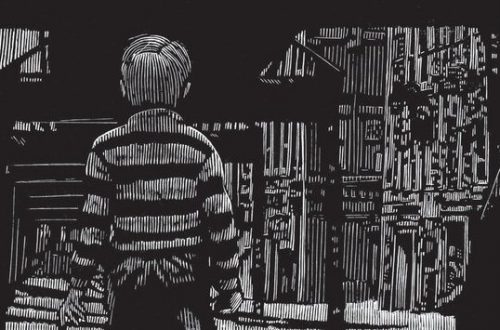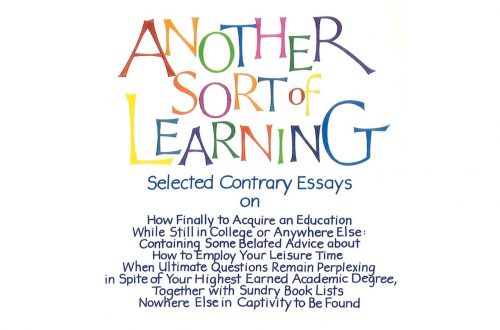“If the truth is worth telling, it is worth making a fool of yourself to tell.”
Have you ever thought of Pontius Pilate as a chain-smoking, nerve-wracked, late-middle aged man in a lower-mid level governorship of a back-water province who is trying to wile away the years until he can retire with his wife and await visits from children and grandchildren? No? Have you ever thought of him as haggard by the job and actually curious to hear from Jesus an honest answer to the question he poses the Jewish peasant, “What is truth?” If not, then you may appreciate Frederick Buechner’s Telling the Truth: The Gospel as Tragedy, Comedy, and Fairy Tale. In it, this frazzled and distraught Pilate is left with only himself to consider when his query is answered by mere silence. When this happens, “You could hear a pin drop in the big, high-ceilinged room with Tiberius grinning down from the wall like a pumpkin, that one cigarette a little unsteady between the procurator’s yellowed fingertips.”
This episode is, according to Buechner, the quintessential experience we have when faced with the gospel. This initial encounter is one of meeting the gospel as tragedy. The gospel is silent. It leaves us with only ourselves and all that is so very, very wrong. Buechner calls this the Real Absence of God. The gospel certainly is news, but “It is the news that man is a sinner, to use the old word, that he is evil in the imagination of his heart, that when he looks in the mirror all in a lather what he sees is at least eight parts chicken, phony, slob.”
Or, have you pictured Abraham and Sarah as rushing to the hospital for the delivery of their first child, knowing that likely they will be not in the maternity ward, but “the geriatric ward and Medicare’s picking up the tab”? Can you see them laughing their fool heads off as they enter through the emergency room doors, knowing that the whole situation is really just ridiculous? Buechner’s depiction of the story centers on the hilarity, because the (very) old couple are the butt of a joke from God. As Buechner imagines it:
Maybe the most interesting part of it all is that far from getting angry at them for laughing, God told them that when the baby was born he wanted them to name him Isaac, which in Hebrew means laughter. So you can say that God not only tolerated their laughter but blessed it and in a sense joined in it himself, which makes it a very special laughter indeed — God and man laughing together, sharing a glorious joke in which both of them are involved.
The Abraham and Sarah story depicts what Buechner calls the comedy of the gospel, comedy “both in the sense of a kind of terrible funniness and of a happy end to all that is terrible.” The tragic is “inevitable” and the comic is “unforeseeable.” Although at another point, Buechner suggests that “seen from the outside, seen as God sees it and as occasionally by the grace of God man also sees it, I suspect that it is really the other way around. From the divine perspective, I suspect that it is the tragic that is seen as not inevitable whereas it is the comic that is bound to happen.” The comedy of the gospel is the surprise grace of God that wrests humanity from sin and death and gives it unexpected and outlandish hope and purpose.
To bring it all together, Buechner borrows from the likes of J.R.R. Tolkien to describe the truth of the gospel as fairy tale. In the gospel fairy tale, “everybody is disguised as something he or she is not and only at the end are all disguises stripped away so that finally all are revealed for what they truly are, and … finally turned into a human being.” In the gospel, extraordinary things happen to people, just as they do in fairy tales. In the gospel fairy tale, humanity is moved from its world of sin and death to the world of forgiveness and life. Unlike all other fairy tales, however, the real power and engagement of the gospel fairy tale is that it is true. Buechner’s book is a wonderful mix exegetical, homiletic, literary, and theological imagination. The writing is both gripping and sublime. If you’re still looking for Christmas gift for that hard-to-buy for reader, consider Telling the Truth, as relevant today as when it was written.





